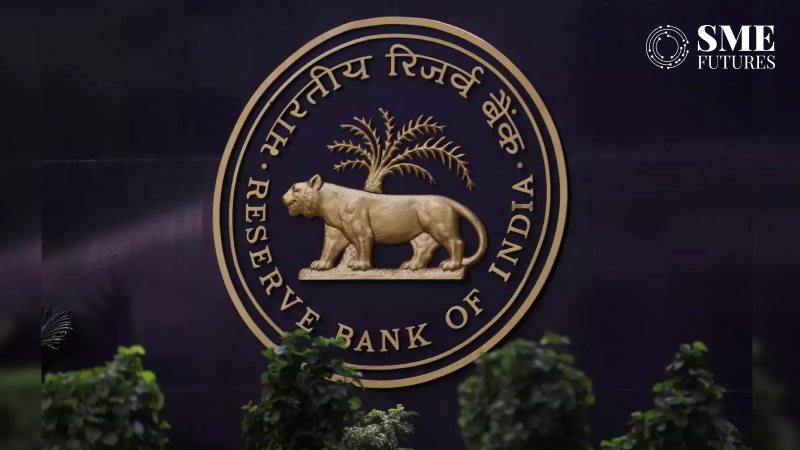Angel Tax exemption for investors from 21 nations to boost foreign investments: Neeraj Tyagi
By exempting specified investors from 21 specific nations, the government aims to facilitate funding for start-ups from these countries, providing them with the necessary financial resources for growth and expansion, says Neeraj Tyagi, Co-Founder and CEO of We Founder Circle.
Neil Banerjee June 21, 2023

MORE IN Interviews
Navigating the path to e-commerce success: Insights from trade policy expert
RegTech solutions can be a game changer in fintech regulatory scrutiny
From slum to CEO and now ‘Seema Aunty’ of Indian start-ups: Rahul Narvekar, The India Network
The recent exemption of Angel Tax for investors from 21 specific nations has sparked discussions about its impact on the start-up ecosystem in India. While the initial exemption for all non-resident investors has been modified, the targeted approach of including investors from specific countries highlights the government’s strategic efforts to attract foreign investments. SME Futures spoke to Neeraj Tyagi, Co-Founder and CEO of We Founder Circle, to get further insight into the exemption and how this move is expected to create a favourable environment for start-ups and foster stronger ties with countries that have shown a keen interest in collaborating with Indian entrepreneurs.
Here are the excerpts from the interview:
How will the exemption of Angel Investment Tax for investors from 21 nations impact the start-up ecosystem in India?
Initially, non-resident investors were exempted from the Angel Tax provision, which would have had a significant impact on attracting foreign investments into Indian start-ups. However, starting from April 1, 2024, non-resident investors are now covered under the Angel Tax provision.
Nevertheless, it’s important to note that specified investors from 21 specific nations have been excluded from this provision and are still exempted from Angel Tax. This targeted exemption for the investors from these nations indicates the government’s intention to strategically attract investments from countries that have shown a keen interest in collaborating with Indian start-ups. While the overall impact may be more limited compared to the initial exemption for all investors, the focus on these 21 nations is expected to create a favourable environment for foreign investments from these specific countries and contribute to the growth of the start-up ecosystem in India.
Can you explain the significance of the Central Board of Direct Taxes’ (CBDT) notification regarding the exemption of Angel Tax for investments from 21 specific nations?
The significance lies in its targeted approach to attract investments. While the initial exemption for all investors would have provided a broader impact, the notification narrows down the eligibility to investors from these specific nations. This serves multiple purposes, including fostering stronger ties with these countries, leveraging existing trade and investment relationships, and encouraging collaborations in the start-up ecosystem. The notification sends a positive signal to both domestic and foreign investors, emphasising the government’s commitment to supporting start-ups and creating an investor-friendly environment.
What are the potential benefits of attracting more foreign investment into Indian start-ups through this exemption?
The potential benefits include increased access to capital, expertise, and market opportunities. By exempting specified investors from the 21 specific nations, the government aims to facilitate funding for start-ups from these countries, providing them with the necessary financial resources for growth and expansion. Foreign investments bring not only capital but also global networks, industry expertise, and market access, which can help Indian start-ups to scale up their operations, explore new markets, and gain a competitive edge. Additionally, the exemption boosts investor confidence, enhances the perception of India as an attractive investment destination, and strengthens the overall start-up ecosystem.
Can you elaborate on the selection process for the 21 nations that were included in the exemption list?
It is likely that the selection was based on various factors such as the country’s economic ties with India, the existing trade and investment relationship between the two, diplomatic considerations, and its potential for fostering entrepreneurial collaborations. The government may have also considered those nations that have shown a significant interest in investing in Indian start-ups or have a track record of substantial investments in the past. While the exact criteria for the selection process are not known, the chosen nations were likely identified based on strategic and economic considerations.
How do you think the exclusion of countries like Singapore, the Netherlands, and Mauritius from the list would affect foreign direct investment (FDI) inflow into Indian start-ups?
These countries have traditionally been major sources of FDI for India, and many investors have utilised the investment structures in these jurisdictions to route investments into Indian start-ups. With their exclusion from the exemption list, it may initially create uncertainty and confusion among the investors who were accustomed to using these channels. However, it’s important to note that the overall effect on FDI inflow into Indian start-ups will depend on the attractiveness of the investment opportunities, ease of doing business, and the overall investment climate in India. While the exclusion may have some short-term impact, other avenues and mechanisms are still available for the investors from these countries to invest in Indian start-ups.
Why do you think the government chose to explicitly mention certain countries in the notification and exclude others?
The exclusion of certain countries does not imply that they are not important to India or that investments from these nations will be discouraged. It just reflects the more targeted approach of the government towards fostering relationships and collaborations with specific countries.
How will this exemption from Angel Tax encourage start-ups to seek investments from the specified nations?
By removing the tax burden on angel investors from these nations, the exemption reduces the financial risks associated with investing in Indian start-ups, making them more attractive to investors. This can lead to increased funding opportunities and access to capital for start-ups, enabling them to accelerate their growth plans, expand their operations, and bring innovative products and services to the market. Additionally, the exemption will enhance investor confidence, highlight the government’s support for start-ups and will also create a more favourable investment climate.
What impact do you foresee this exemption having on the growth and expansion plans of Indian start-ups?
Previously, when the exemption was applicable to all non-resident investors, it provided a broader scope for attracting capital and fostering investor confidence. However, the narrowing down of the exemption to investors from only 21 specified nations limits the potential benefits for start-ups.
Are there any specific sectors or industries that are expected to benefit the most from this exemption?
It is anticipated to have a broad-based impact across various sectors. Start-ups in technology, e-commerce, fintech, healthcare, and other innovative sectors have traditionally attracted significant investments. However, the start-ups in emerging sectors or those addressing specific societal challenges, such as renewable energy, agritech, edtech, and clean technology, may also stand to benefit now. The benefits of the exemption are not limited to specific sectors and are expected to extend to the entire start-up ecosystem.
How will the valuation guidelines for non-resident investment in unrecognised start-ups, which are expected to be released by the CBDT, complement this exemption?
The recent amendment to the Angel Tax exemption has resulted in a significant change from the previous scenario where the exemption was available to all non-resident investors. Now, with the exception of investors from 21 specified nations, all other investors fall under the ambit of Angel Tax. However, to complement this change, the forthcoming valuation guidelines by the CBDT will offer more flexibility to investors in determining start-up valuations. Unlike the previous limitation to two valuation methods, the new guidelines will allow investors to evaluate the fair value of a start-up by using the most suitable valuation method based on the expected new guidelines. This adjustment will provide greater transparency and ease in determining the fair value of a start-up. It will also significantly mitigate the challenges that were being faced earlier under the old rules, where adequate valuation determination was often difficult.











